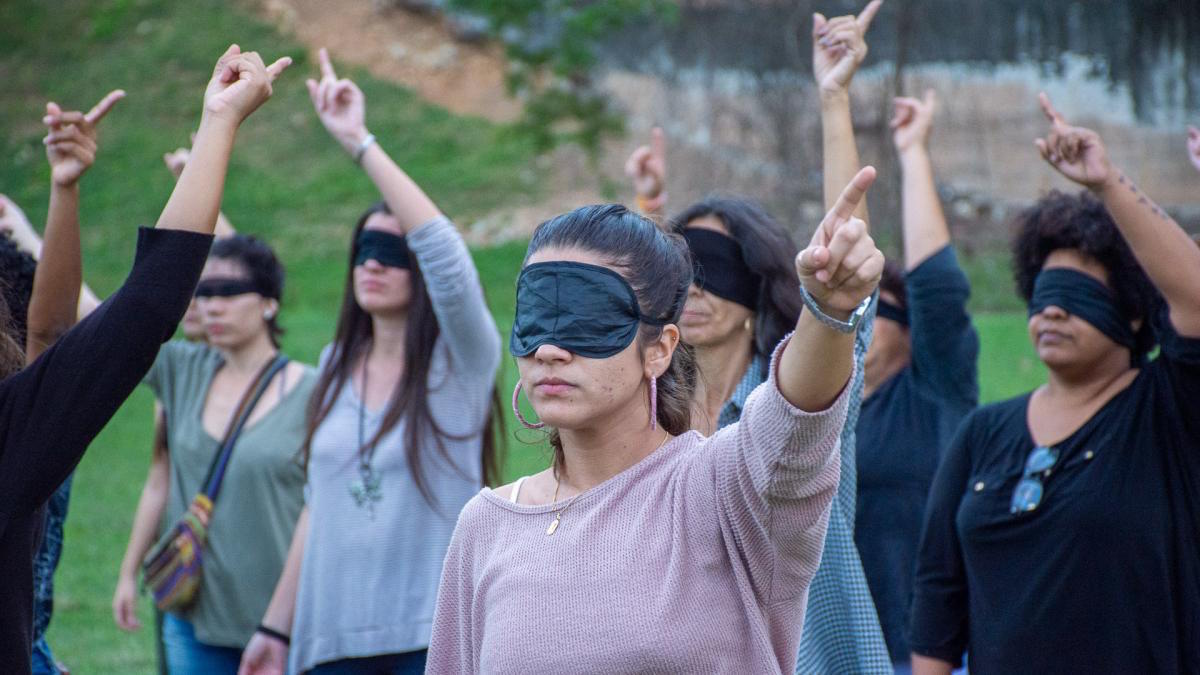A feminist anthem is sweeping the world: "A Rapist in Your Path" was created in Chile during the recent protests against the government of Sebastián Piñera, and has been sung by feminist groups in Paris, London, Barcelona, Bogotá, Guatemala and Nicaragua. And in Havana, too, unexpectedly.
A group of Cuban women ranging in age recorded the anthem in the courtyard of the Higher Institute of Art. It was not a public place, nor was there a general appeal for other women, considering themselves feminists or not, tired of gender violence against them, to join in.
But the performance had the support of a man: the rector of the University of the Arts.
This is not an isolated event in Cuba: after the triumph of the Revolution, women, like everyone else, had to adapt to request permission to organize events in public spaces. But they, historically subordinated to masculine power, ran into a patriarchate clad in olive green, bearded and sexist, who wanted them, conveniently, on their side.
"The Federation [of Cuban Women] (FMC) was founded to unite women and constitute a firm pillar of the Revolution," stated Vilma Espín Guillois back in the 80s, one of the woman guerrillas who accompanied Fidel Castro in the Sierra Maestra, and presided over the FMC until her death.
With such a past, now it is hardly surprising that the closing speeches at congresses of Cuban women are pronounced by hardliners of the Government and the Communist party, especially by patriarchs who aspire to issue orders that are to be followed.
In this national context, neither is it surprising that 4 out of 10 Cuban women, almost half on the island, have been assaulted by their partners, without recognizing that they have suffered gender-based violence.
Only one out of ten consider gender-based violence, or Violence Against Women, a "central problem," as indicated by the National Survey on Gender Equality conducted by the state National Office of Statistics and Information (ONEI) in 2016.
What was the FMC doing while women were being mistreated by their husbands, or raped in the street? Worse still: How has the FMC –and the political power behind it– contributed to the fact that Cubans do not realize that they suffer from VAW?
So far "it has been 60 years of an uncritical view of who we are as women. The fact that we were able to join the workforce, attend university without major problems, that we achieved some sexual freedom... has created a veneer. People think that because they have access to abortion, and birth control pills, all women's problems have already been resolved," feminist journalist Marta María Ramírez told DIARIO DE CUBA.
"They tried to merge us under a single authority, and they criminalized feminism and turned it into something foreign, strange and unnecessary. As feminists, we were turned into enemies. "
After the triumph of the Cuban Revolution, all the island's women's groups were forced to dissolve or join the FMC.
In 1996 the Central Committee of the Communist Party of Cuba (PCC) even ordered the "deactivation" of the Magín Association of Women Communicators. The disintegration of this group of feminist communicators, writers, filmmakers and scientists concerned with the dissemination of sexist stereotypes in the media stands out as an example of the regime's role in the demobilization of women.
The FMC, despite creating Orientation Houses for Women and the Family in the 90s, and promoting annual conferences against sexist violence in the official media, and in some public spaces under State control, has not promoted an open and critical discussion of VAW in the nation's discourse, nor has it backed any laws addressing Violence Against Women.
On November 21, 40 Cuban women submitted a Request for a Comprehensive Law against Gender Violence to Cuba's National Assembly of Popular Power. It is possible that most of the signatories are FMC members, but the request was not generated within the organization.
Government spokespersons, such as Deputy Mariela Castro Espín, have often denied the existence of the most extreme form of VAW: femicide. In 2015 the director of CENESEX told the newspaper Tiempo Argentino that there was no femicide on the Island. "Because Cuba is not a violent country, and that is an effect of the Revolution," she added.
The daughter of the First Secretary of the PCC was oblivious to the limited information provided by the Government itself: in 2016, a woman was murdered in Cuba every week by her partner or ex-partner. The scant official data that exists indicates that in 2013 even more ultimately died: a total of 66.
However, "the fact that people do not recognize a phenomenon does not mean that it does not exist, but rather that various factors impede its recognition. If gender-based violence is normalized, or called something else, in the end the society's shared imagination denies it, displaces it, makes it invisible," the writer, literary critic and LGBTIQ rights activist Yasmín Silvia Portales Machado told DIARIO DE CUBA.
If most Cubans today do not believe that sexism or gender violence exist, it is because they grew up hearing that those were those "evils" eradicated by the Revolution, points out Cuban lawyer Laritza Diversent, director of the independent Cubalex Legal Information Center.
Women on the island do not recognize themselves as victims of gender violence because "for 60 years the official press, schools, and state institutions have been saying that Cuban women live in a paradise."
"And now, thanks to that effect, nobody saves us from VAW."
